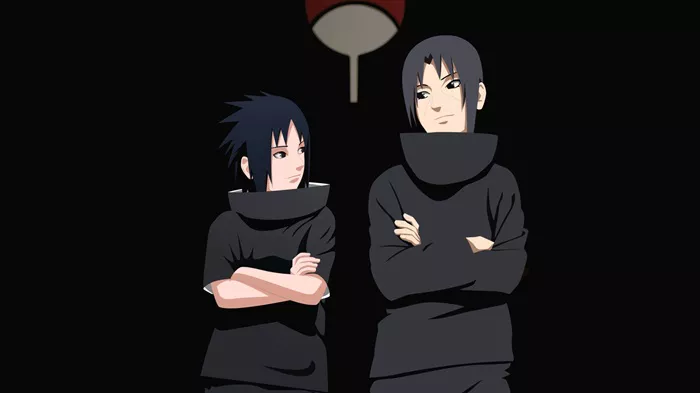In Masashi Kishimoto’s renowned manga and anime series “Naruto,” the Uchiha brothers, Itachi and Sasuke, stand as two of the most complex and compelling characters. Both possess extraordinary intellect and prowess in combat, but their approaches to life and their understanding of the world differ significantly. In this article, we delve into the question: Is Itachi smarter than Sasuke?
Defining Intelligence: The Multifaceted Nature of Genius
Before comparing the intelligence of Itachi and Sasuke, it’s crucial to define what constitutes intelligence in the context of the Naruto universe. Intelligence encompasses various attributes, including analytical skills, strategic thinking, emotional intelligence, adaptability, and creativity. Each character may excel in different aspects of intelligence, contributing to their overall intellectual prowess.
The Enigma of Itachi Uchiha: A Genius in Disguise
Itachi Uchiha, the elder brother, is introduced as a prodigy within the Uchiha clan and the shinobi world at large. Gifted with exceptional intellect and a mastery of various ninjutsu, genjutsu, and taijutsu techniques, Itachi rises to prominence at a young age. His strategic acumen, coupled with his profound understanding of human psychology, makes him a formidable opponent and a master manipulator.
Throughout the series, Itachi demonstrates a keen ability to anticipate his opponents’ moves, devise intricate plans, and manipulate events from behind the scenes. His actions, though shrouded in mystery and often misunderstood, are driven by a deep sense of duty and sacrifice for the greater good—a testament to his intellectual depth and moral complexity.
The Evolution of Sasuke Uchiha: A Journey of Growth and Discovery
Sasuke Uchiha, the younger brother, initially appears as a hot-headed and vengeful character consumed by the desire to avenge his clan’s demise at the hands of Itachi. Despite his turbulent upbringing and the trauma of witnessing his family’s murder, Sasuke possesses innate talent and a fierce determination to surpass his brother and seek vengeance.
As the series progresses, Sasuke undergoes a profound transformation, grappling with his identity, his purpose, and his relationship with Itachi. Through his encounters with various mentors and adversaries, Sasuke gains valuable insights into the nature of power, sacrifice, and the consequences of one’s actions. His journey leads him to question his perception of reality and ultimately confront the truth behind Itachi’s actions.
Comparing Their Intellectual Prowess: Itachi vs. Sasuke
In assessing the intelligence of Itachi and Sasuke, it’s essential to consider their respective strengths, weaknesses, and experiences throughout the series.
1. Analytical Skills and Strategic Thinking
Itachi excels in analytical thinking and strategic planning, often several steps ahead of his opponents. His ability to read people’s intentions, anticipate their moves, and manipulate situations to his advantage is unparalleled. Itachi’s strategic brilliance is evident in his orchestration of complex schemes, such as his manipulation of Sasuke’s path and his efforts to protect Konoha from internal and external threats.
Sasuke, while possessing natural talent and perceptiveness, initially lacks the same level of strategic foresight as Itachi. However, as he matures and gains experience, Sasuke develops a more nuanced understanding of tactics and begins to implement his own strategic plans. His encounters with powerful adversaries, such as Naruto, Kakashi, and the members of the Akatsuki, force him to adapt his strategies and leverage his intellect in combat.
2. Emotional Intelligence and Psychological Insight
Itachi demonstrates a profound understanding of human psychology and emotions, using his insights to manipulate others and achieve his objectives. His calm demeanor and ability to maintain composure in the face of adversity allow him to control the flow of events and exploit his opponents’ weaknesses. Itachi’s mastery of genjutsu further enhances his psychological warfare tactics, enabling him to deceive and disorient his adversaries.
Sasuke, initially driven by emotions of anger, resentment, and vengeance, struggles with his emotional intelligence throughout much of the series. His intense desire for revenge against Itachi clouds his judgment and leads him down a path of darkness and isolation. However, as Sasuke confronts his inner demons and reconciles with his past, he gains a deeper understanding of his emotions and their impact on his decisions.
3. Adaptability and Learning Agility
Itachi demonstrates remarkable adaptability and learning agility, quickly adapting to new challenges and refining his techniques to overcome his adversaries. His ability to assimilate new information, analyze complex situations, and adjust his strategies accordingly reflects his intellectual flexibility and versatility.
Sasuke, while initially driven by a single-minded pursuit of power and vengeance, undergoes a transformative journey of self-discovery and growth. His encounters with mentors such as Orochimaru, Itachi, and Naruto, as well as his experiences in battle, compel him to broaden his perspective and expand his repertoire of techniques. Sasuke’s willingness to learn from his mistakes and embrace new perspectives demonstrates his capacity for adaptability and growth.
Conclusion
In conclusion, the question of whether Itachi is smarter than Sasuke is not easily answered, as both characters possess unique strengths and weaknesses that contribute to their intellectual prowess. Itachi excels in analytical thinking, strategic planning, and psychological manipulation, while Sasuke demonstrates growth in emotional intelligence, adaptability, and learning agility.
Ultimately, the intelligence of Itachi and Sasuke manifests in different ways, shaped by their experiences, motivations, and personal journeys. Itachi’s cunning and foresight, combined with Sasuke’s resilience and growth, culminate in a complex and nuanced portrayal of intelligence within the Naruto universe. Whether one is “smarter” than the other is subjective and ultimately depends on the context in which their abilities are evaluated.

